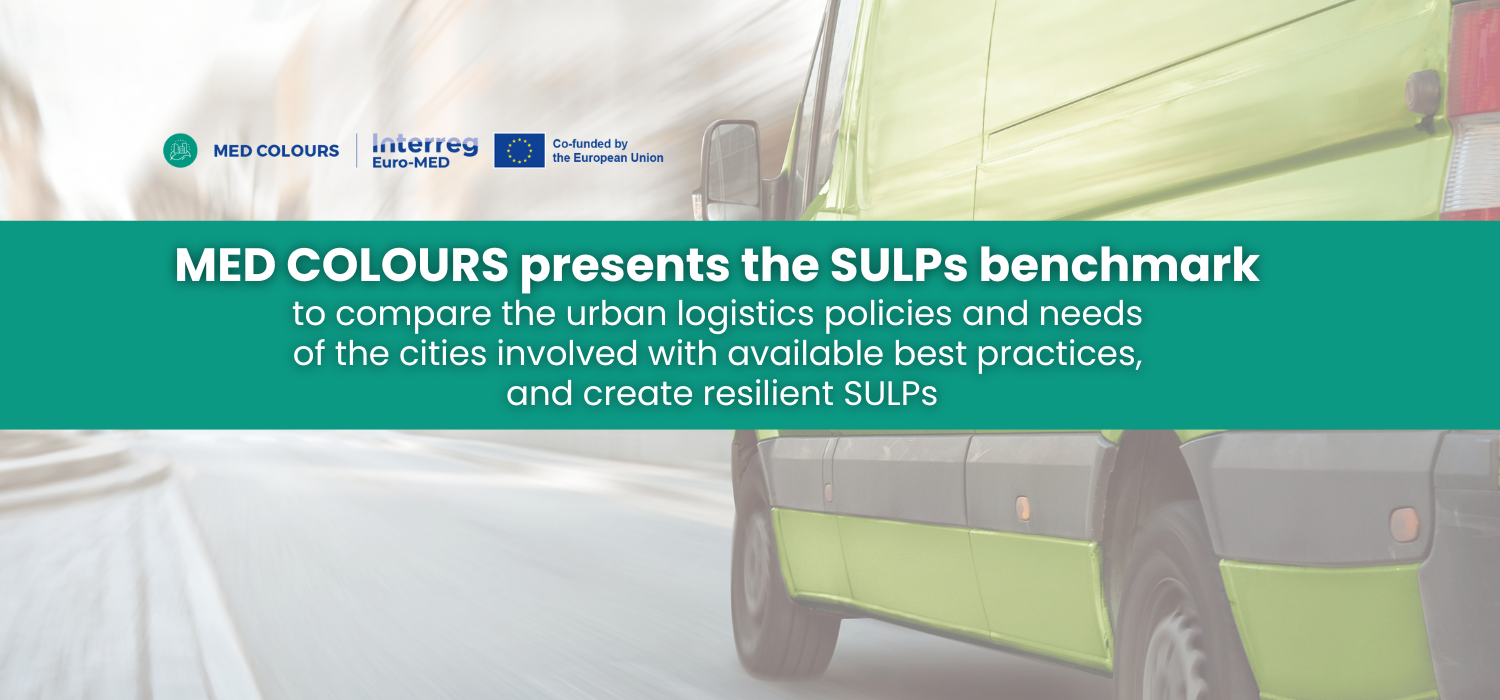MED COLOURS presents the SULPs benchmark, to compare the urban logistics policies and needs of the cities involved with available best practices, and create resilient SULPs
In the framework of the MED COLOURS project, the “knowledge” partners, led by the University of Maribor, will transfer to the “operational” partners the project’s legacy, consisting of the experience built up through the results of previous projects and the knowledge base developed in the EU thematic initiatives to which they contributed.
The transfer will take place by adapting the methodological and practical knowledge to the real expectations of the existing policy instruments (SULPs or urban logistics measures in SUMPs) of the cities involved – Livorno (ITALY), Cesena (ITALY), Thessaloniki (GREECE), Koper (SLOVENIA), Lisbon (PORTUGAL) and Lyon (FRANCE) – with the aim of translating the specific and common needs, challenges and conditions faced by the MED COLOURS regions into operational objectives to be addressed in the next planning process.
Available data, data sources and data management tools to support decision-making were then mapped in each city. As a result of this activity, Deliverable D.1.1: MED COLOURS SULPs benchmark was produced.
The primary objective of this report is to benchmark urban logistics policies and needs in MED COLOURS cities against best practices available as results of most relevant EU projects and EU initiatives. This will define, among others, a common SULP characterization for the MED area and help to create resilient SULPs.
Here are the key insights from the Benchmark analysis of strategic documents in MED COLOURS cities:
- Increasing demand for urban freight deliveries and the resulting issues of congestion, energy use, emissions, and noise are of major concerns.
- CO2-free city logistics, increased efficiency, congestion reduction, enhanced liveability, and preservation of urban environments are the most frequently addressed goals..
- Regulatory measures, infrastructure measures, and measures related to new technologies are the most frequently addressed.
- Lack of data on logistics processes, lack of tools for effective urban logistics planning is observed in COLOURS cities.
- Best practices from 16 EU projects and 5 EU initiatives have provided a set of innovative approaches, tools, and knowledge bases for cities to overcome challenges and develop resilient Sustainable Urban Logistics Plans (SULPs).
For more information, please refer to the first newsletter of the MED COLOURS project.


